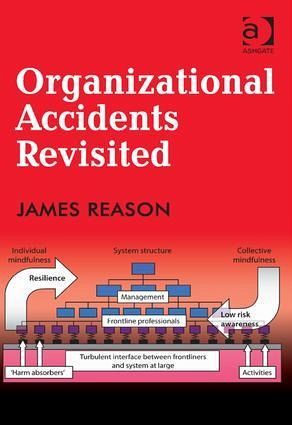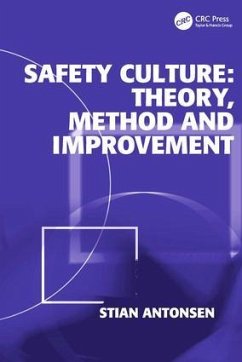
Organizational Accidents Revisited
Versandkostenfrei!
Versandfertig in 1-2 Wochen
166,99 €
inkl. MwSt.
Weitere Ausgaben:

PAYBACK Punkte
83 °P sammeln!
Managing the Risks of Organizational Accidents introduced the notion of an 'organizational accident'. These are rare but often calamitous events that occur in complex technological systems operating in hazardous circumstances. They stand in sharp contrast to 'individual accidents' whose damaging consequences are limited to relatively few people or assets. Although they share some common causal factors, they mostly have quite different causal pathways. The frequency of individual accidents - usually lost-time injuries - does not predict the likelihood of an organizational accident. The book als...
Managing the Risks of Organizational Accidents introduced the notion of an 'organizational accident'. These are rare but often calamitous events that occur in complex technological systems operating in hazardous circumstances. They stand in sharp contrast to 'individual accidents' whose damaging consequences are limited to relatively few people or assets. Although they share some common causal factors, they mostly have quite different causal pathways. The frequency of individual accidents - usually lost-time injuries - does not predict the likelihood of an organizational accident. The book also elaborated upon the widely-cited Swiss Cheese Model. Organizational Accidents Revisited extends and develops these ideas using a standardized causal analysis of some 10 organizational accidents that have occurred in a variety of domains in the nearly 20 years that have passed since the original was published. These analyses provide the 'raw data' for the process of drilling down into the underlying causal pathways. Many contributing latent conditions recur in a variety of domains. A number of these - organizational issues, design, procedures and so on - are examined in close detail in order to identify likely problems before they combine to penetrate the defences-in-depth. Where the 1997 book focused largely upon the systemic factors underlying organizational accidents, this complementary follow-up goes beyond this to examine what can be done to improve the 'error wisdom' and risk awareness of those on the spot; they are often the last line of defence and so have the power to halt the accident trajectory before it can cause damage. The book concludes by advocating that system safety should require the integration of systemic factors (collective mindfulness) with individual mental skills (personal mindfulness).













